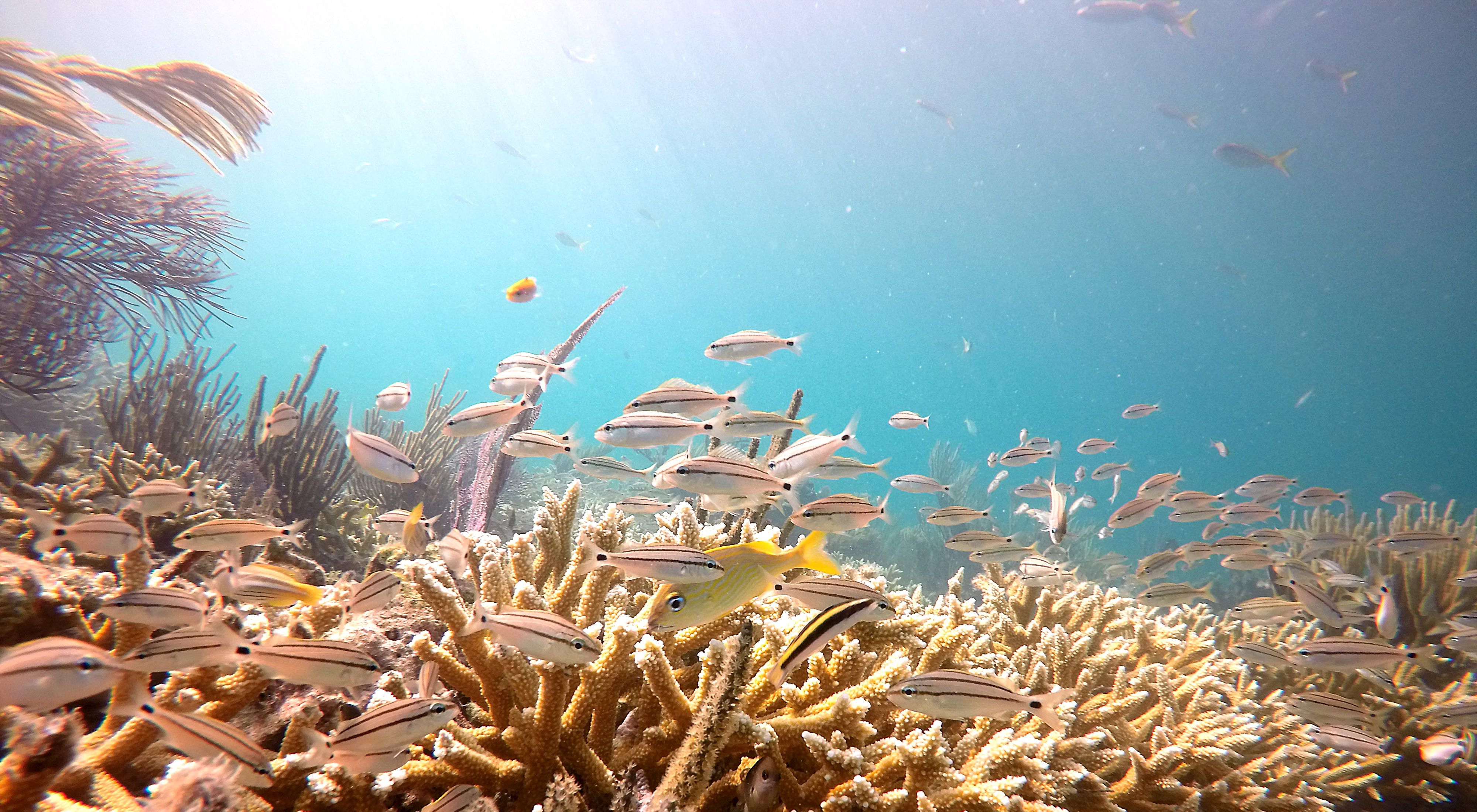Ocean Leaders Unite in Montreal to Call for Global Action to Protect Nature and Halt Biodiversity Loss
A new white paper on the role of coral reef restoration in the context of climate change and global 30 x 30 targets was announced today at CBD COP15.
Media Contacts
-
Ciaran Clayton
Email: ciaran.clayton@tnc.org
World leaders are gathering in Montreal, Canada for the 15th Conference of the Parties (COP15) to the United Nations Convention on Biological Diversity (CBD). The goal of the meeting is to agree on targets to halt and reverse unprecedented biodiversity loss via a Global Biodiversity Framework and chart a path toward a nature-positive world by 2030.
Meeting the targets of the Post-2020 Global Biodiversity Framework requires urgent action and funding to protect and restore critical ecosystems, especially coral reefs. The protection and restoration of coral reefs is essential to conserve biodiversity, as coral reefs support ¼ of all marine life and benefit 1 billion people around the world.
At the COP15, an interactive session, led by global ocean experts, showcased pathways and best practices for achieving coral reef targets, including through increased protection and restoration, reduction of local threats, increased knowledge sharing, supportive policies, and sustainable finance.
The panel highlighted key considerations for countries, demonstrating a unified coral community ready to act, and support the implementation of the Post-2020 Global Biodiversity Framework. Secretary/Minister Elina P. Akinaga, Department of Resources & Development, opened the event and called on world leaders and governments to take action at this once-in-a-generation opportunity to secure a future for coral reefs through the Global Biodiversity Framework.
In addition, a white paper was launched at the event entitled, “Meeting 30 by 30: The Role of Coral Reef Restoration,” supported by the Bloomberg Ocean Initiative.
One of the paper’s lead authors, Dr. Elizabeth Mcleod, The Nature Conservancy’s Global Reef lead, highlighted the importance of restoration to sustain coral reefs in the face of increasing threats. “The world’s coral reefs are vitally important, but we are losing them at alarming rates. We need to set bold and ambitious protection and restoration targets and take immediate actions to protect reefs, stem the losses, and where feasible, restore them to secure a future for coral reefs.
Other coral reef champions including the International Coral Reef Initiative, the Global Fund for Coral Reefs, and the Global Coral R&D Accelerator Platform (CORDAP.org) highlighted the importance of scaling up R&D, addressing local drivers of reef decline, expansion of coral restoration, and sustainable financing. “Securing a future for coral reefs may seem impossible, provided the projected impacts of climate change. However, it is the role of science to redefine the boundaries of the possible, and in this case, it is hundreds of millions of livelihoods and a good share of the oceans’ biodiversity which is at stake” said Dr. Carlos M. Duarte, Executive Director of CORDAP.org.
The paper provides recommendations for governments, funders, conservation organizations, and stakeholders on how to meet 30 by 30 targets through promoting the persistence, survival, and where necessary, the restoration of coral reefs to secure the valuable ecosystem services that they provide.
Francis Staub, Global Coordinator, International Coral Reef Initiative (ICRI) Secretariat, said “ICRI recognizes that reef restoration is a valid management option in areas when natural recovery is eroded but is not a ‘silver bullet’ and should be accompanied by other actions that support reef resilience”.
The Nature Conservancy is a global conservation organization dedicated to conserving the lands and waters on which all life depends. Guided by science, we create innovative, on-the-ground solutions to our world’s toughest challenges so that nature and people can thrive together. We are tackling climate change, conserving lands, waters and oceans at an unprecedented scale, providing food and water sustainably and helping make cities more sustainable. The Nature Conservancy is working to make a lasting difference around the world in 81 countries and territories (40 by direct conservation impact and 41 through partners) through a collaborative approach that engages local communities, governments, the private sector, and other partners. To learn more, visit nature.org or follow @nature_press on X.
